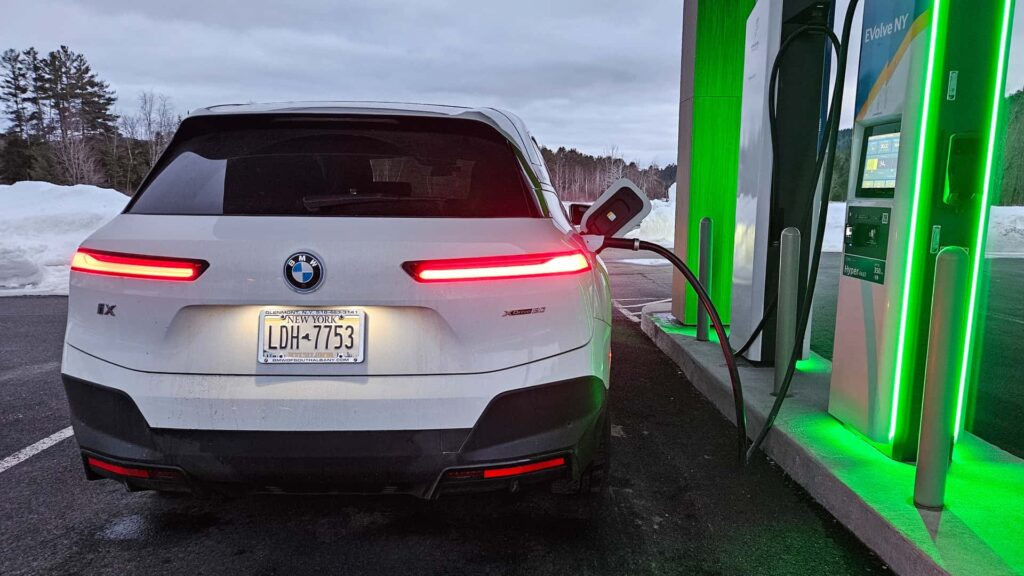BMW is reportedly in the works of developing an extended-range version of their upcoming electric X5 SUV. This new EREV system is rumored to provide an impressive combined range of up to 621 miles (1,000 km), marking a significant advancement in BMW’s electric vehicle lineup.
The concept of range extenders is not new to BMW, as they previously offered a production range extender with the i3 REx model. Despite discontinuing this model in 2022 and claiming that extended-range EVs had “no future,” BMW seems to be revisiting the idea with the development of the new EREV for the X5.
Reports from sources like Automobilwoche suggest that BMW is actively working on incorporating a range extender into the upcoming electric X5, possibly named the iX5. Although BMW has not officially confirmed this development, they have not denied it either. A BMW spokesperson mentioned that they continuously analyze market trends and technologies to meet customer needs.
The extended-range iX5 is expected to offer a range of 621 miles (1,000 km) on a full tank and battery, providing a practical solution for drivers looking for extended range capabilities. By implementing a smaller battery and a combustion generator, BMW can optimize the efficiency of the EREV system in the iX5.
With the growing interest in range extenders among buyers, BMW’s decision to introduce this technology in their larger electric SUVs makes strategic sense. As Volkswagen-backed Scout prepares to launch range extenders and Genesis plans to add EREVs to their lineup, BMW is likely to stay competitive by offering extended-range options in their vehicles.
Collaborating with automotive supplier ZF on the EREV project, BMW can benefit from their expertise in developing hybrid solutions. The potential use of a BMW 1.5-liter three-cylinder turbocharged engine to power the generator highlights the brand’s commitment to innovation and performance.
If successful, the EREV powertrain could also be extended to other models like the three-row iX7 and a potential coupe-like iX6 in the future. However, it is unlikely that the smaller iX3 and potential iX4 will receive EREV versions, as they are built on a new EV-only architecture.
Overall, BMW’s venture into extended-range electric vehicles signifies a shift towards more versatile and efficient mobility solutions, catering to the evolving needs of electric vehicle drivers. With advancements in EREV technology, BMW is poised to offer a compelling lineup of electric SUVs with extended range capabilities.

